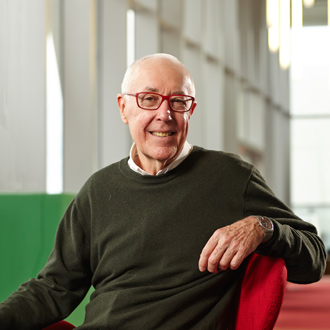Professor Neville Owen

Neville is a Senior Scientist in the Institute’s Physical Activity Laboratory and Distinguished Professor in the Centre for Urban Transitions at Swinburne University. He has honorary appointments as an Adjunct Professor in the School of Public Health at the University of Queensland, the Department of Medicine at Monash University, and the Centre for Health Research at the University of Southern Queensland.
His research informs the prevention and management of diabetes, heart disease and cancer, through identifying health consequences and environmental influences on physical inactivity and sedentary behaviour — too little exercise and too much sitting. This involves laboratory-based experimental work, large scale prospective observational studies and field-based randomised controlled trials. He has published some 630 peer-reviewed papers. He is a Clarivate Highly Cited Researcher, his Google Scholar H-index is 159, and his published papers have a total of some 112,000 citations.
Neville’s work has been supported by nationally competitive grants from multiple countries and by the National Health and Medical Research Council of Australia and the National Heart Foundation. He has been awarded grants from the Japan Society for the Promotion of Science; the Academy of Finland; and the World Cancer Research Fund, as well as NHMRC Senior Principal Research Fellowships, Program Grants, Capacity-Building and Centre of Research Excellence grants, and multiple project grants.
His previous positions have included as Head of the Behavioural Epidemiology laboratory at the Baker Institute, as Director of the Cancer Prevention Research Centre at the University of Queensland, and as Foundation Professor of Human Movement Science and Director of Research for the Faculty of Health and Behavioral Sciences and Head of the School of Human Movement at Deakin University.


 Sedentary Behavior and Health: concepts, assessments and interventions
Sedentary Behavior and Health: concepts, assessments and interventions